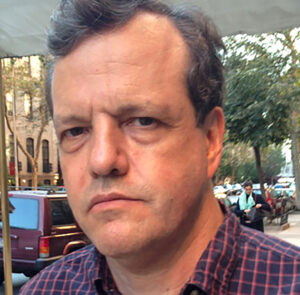My involvement in biotech investing began in 1980 as a 24-year-old stockbroker who had been on Wall Street for almost five years. I had gone straight from getting my master’s degree in music education to joining Bache Halsey Stuart Shields, an online brokerage firm with a training program. Not long after I became a stockbroker, Genentech went public, and the enthusiasm for biotech was contagious.

I saw the first trade on Genentech, which did its initial public offering at $35 a share. Turning to my brother and father, I said we could package good science and offer it to the public not at $35 a share, but at $6 a share, a retail offering that would appeal to the public’s sense of proportion, and where they could dream about becoming millionaires while not being beholden to venture capitalists to get in on the deal.
I had no specific qualifications that would have made me particularly well suited to front a biotech company. The field was so new that I was just going by instinct, that is, the gut emotional appeal of a technology that could offer a magic bullet for cancer. Growing up with my father, I dreamed about starting a medical company. He was a rabbi and a stockbroker, and my affinity for medical ventures sprouted from his empathy.
I celebrated my 25th birthday on November 25, 1980, by resigning my position as a stockbroker and forming Genetic Systems. It turned out that we didn’t have a technology picked out for Genetic Systems, but we did at least have a name. We did some smart due diligence and became the third major monoclonal antibody company after Hybritech (which was formed by Kleiner Perkins Caufield & Byers) and Centocor (which sprang from the Wistar Institute in Philadelphia and had a number of famous scientists attached to it).
We read an article that said monoclonal antibody technology was going to do for the medical arena what the transistor did for the electronics industry. That’s all we needed. Monoclonal technology was the perfect spot to start a biotech company. It offered the short-term attractiveness of diagnostic technology that could yield product approvals in a short timeframe. You didn’t have to be a deep-pocketed venture capitalist to have an impact on the medical world.
Here we are 40 years later, and monoclonal antibodies are a household word, largely as a result of the pandemic. Regeneron is making monoclonals against COVID-19, and they’re working. So, it was all about instinct.
But we also didn’t have 10 years’ worth of burn rate to spend before yielding our first product. And that’s where an article on monoclonals written by Lloyd Henry Schloen from Sloan Kettering had a huge impact on our team. It was called “Immortalizing Immunity: Taming cancer cells to mass-produce antibodies,” and it appeared in the July–August 1980 issue of The Sciences.
The article perfectly summarized the effect monoclonal antibodies could have on medicine, and we immediately contacted one of the scientists who had been identified in the article as a leader in the field, Robert Nowinski, from the Fred Hutchinson Cancer Center in Seattle. He became the CEO of our initial investment, Genetic Systems.
Although there were a few naysayers who opposed biotechnology in those early years, any fears they raised were quickly overwhelmed by these new powerful life sciences projects and technologies. People want to live longer. They want to have a better quality of life. They want scientists to cure diseases. And everyone knows somebody who has had cancer. All this presented us with a wonderful opportunity with Genetic Systems.
One of the most surprising trends was the appetite that big pharma had for little biotech companies to keep them going with R&D deals and M&A transactions. This became clear only in the mid-1980s, when Genetic Systems, Hybritech, and Centocor were all acquired in a space of months. I didn’t realize that the corporate appetite would be so distinct, and that it would grow so quickly.
Looking at today’s bioindustry, the excitement over gene editing and related technologies has made it possible for companies to dream about becoming the next Moderna with a $100-plus billion valuation. We had no idea back in the eighties that these things were possible. We sold Genetic Systems for $294 million, Hybritech was sold for $350 million, and Centocor was sold for a number along those lines. That was it for us.
In the early 1980s, we used buzzwords. We did not foresee the expertise that would eventually be brought to bear on biotech coming from Wall Street, that is, the degree to which PhDs would be doing deep dives into technologies and doing proper due diligence.
David Blech is an American businessman, investor, and venture capitalist. He was a financial pioneer of the biotech industry and was once known as the “King of Biotech.” Blech made the Fortune 400 list in 1992 with a net worth of $300 million.
*This title alludes to “Those Were the Days,” a song performed in 1968 by Mary Hopkin.

